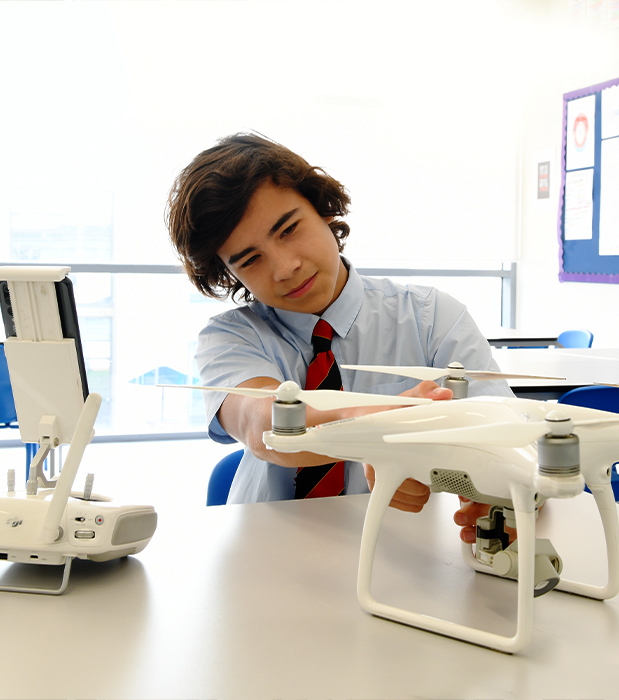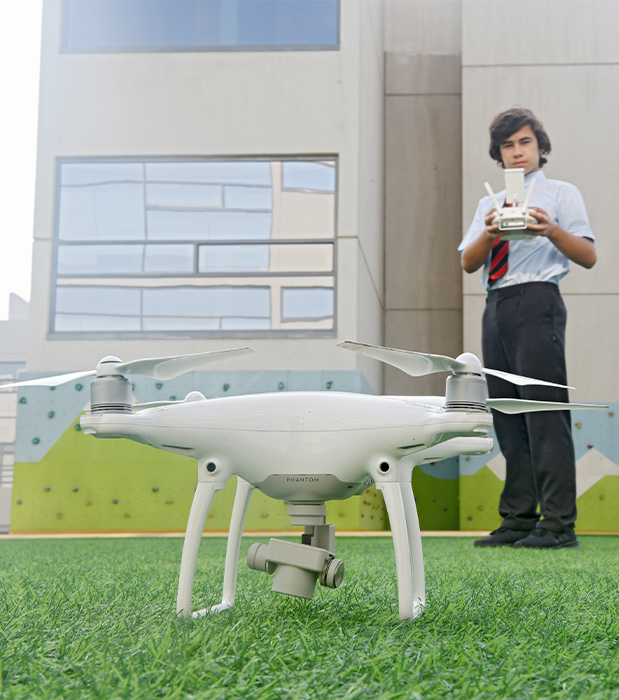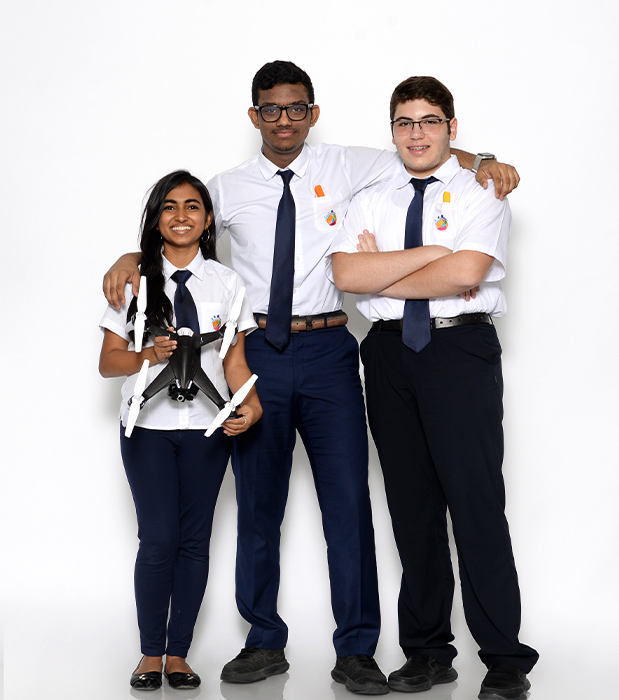
Aviation
All of us, at one point in our childhood have looked up to the sky, the stars and dreamt about flying through space and maybe even visiting unknown lands beyond. Day by day, space travel is moving away from being an impossible dream to becoming a reality for more and more people.
Rapid developments in technology, investment by countries and space tourism projects by businesses such as Blue Origin, Virgin Galactic and SpaceX, mean that space will become more and more accessible to people around the world.
On 25th September 2019, Hazza Al Mansouri embarked on a historic mission and became the first person from the United Arab Emirates (UAE) to go to space. Speaking at the Humans in Space (HIS) 2019 Symposium, it was clear that Hazza Al Mansouri was one of these children that once looked up to the sky and dreamt. Addressing a room packed full of guests, including a number of wide-eyed GEMS Education students, Hazza Al Mansouri captured their imagination with tales about his background, training and mission.
During the panel session, experts from Mohammed bin Rashid Space Centre (MBRSC), discussed the inception of the space mission and the vision of His Highness, Sheikh Mohammed bin Rashid Al Maktoum, to develop a sustainable space programme in the UAE. It is clear that space travel is not something that is a one off but is here to stay and grow in the UAE.
Hazza Al Mansouri described the dreams he had of being an astronaut and how he felt the closest he could get to this was becoming a pilot. He studied and trained going on to become one of the UAE’s best pilots. This eventually provided him with the launchpad he needed to become an astronaut.
Aviation has been at the heart of the UAE’s growth and development as a country. The country has become a leader in air trade facilitation. According to International Air Transport Association (IATA), the UAE's aviation sector is set to develop even further and by 2037 could support 1.4 million jobs and contribute $128 billion to the nation's GDP.
With the inevitable rise of space and aviation sectors, it is more vital now than ever that we give young people a head start. The choice of working in these sectors is not just a dream but will become a reality for more and more young people.
GEMS Education recently launched five Centres of Excellence, aiming to blur the traditional boundaries of school, university and employment and create a new pathway for GEMS students to learn and rapidly progress in identified areas of importance. One of these five Centres of Excellence is GEMS International School Al Khail (GIS), focusing on aviation, aeronautics and space. GIS aims to become the hub for K-12 education in this field.
GEMS International School students will have access to a range of experiences, credentials and qualifications. Working with expert, experienced and industry-leading partners, the Centre of Excellence students will have access to unique experiences and be better prepared for the upcoming rise of these industries.
Zeeshan Nabi, GEMS International School’s, Chief Innovation and Digital Officer, outlines the Centre of Excellence’s strategic areas of focus.
Student development
Which is at the heart of any decision made and any action taken. Our students will be provided with access to the latest technologies such as flight simulators, drone technology, specialised curriculum content and pathways, as well as access to leading experts in the field. Student will have opportunities to work on real world aviation projects and we will work towards getting aspiring pilots, access to flight time. We have developed key partnerships with industry leaders such as Emirates Airlines, University of South Wales and Mohammed bin Rashid Space Centre. Our students will gain exposure to these organisations through various methods of collaboration such as internships, specialised projects and bespoke pathways.
Research & Development
Is important for the longevity of the programme and at GIS, we will lead training and support across the network, with the development of student and expert committees. GEMS Education has a large network of schools and GIS is now the hub of this network for all things related to aviation and space. GIS will actively develop incubation hubs for best practice, generate and publish latest thinking and research.
Teacher Development
Is a vital element and GIS will become the professional centre for developing teacher excellence and capability. It will upskill teachers to be able to deliver technical STEM content focused education around aviation, aeronautics and space.
Creating a Culture
At GIS, we want to develop a culture within the school that focuses on aviation. As part of this, the school will lead major learning events annually for students across the network in aviation. Indeed, aviation is set to become the ‘heart’ of many of the incentives and projects across the school.
-



